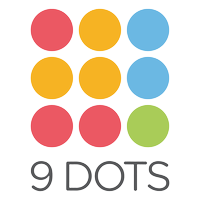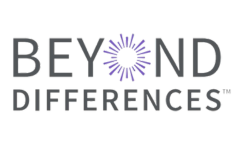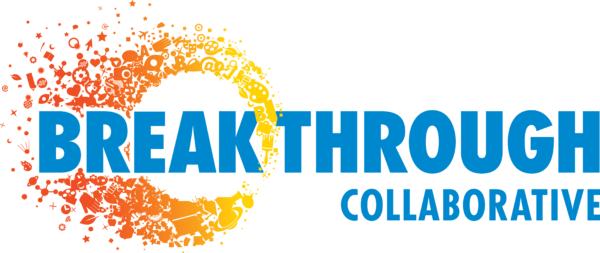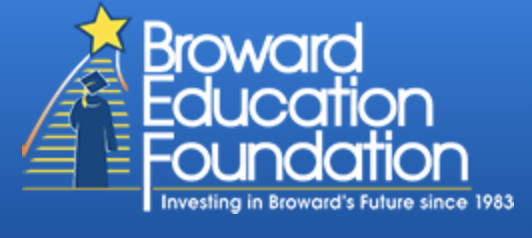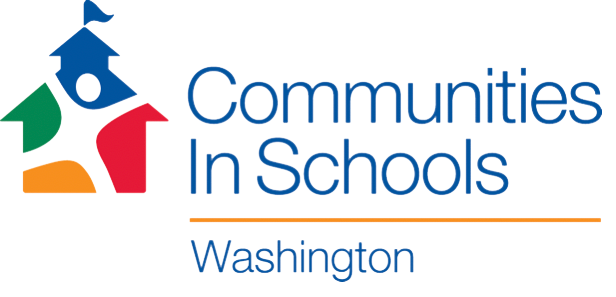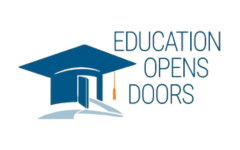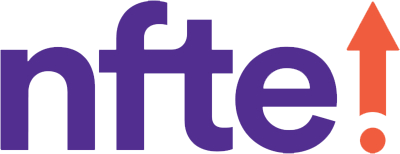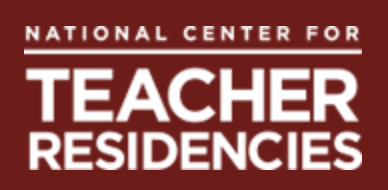Past Education Projects
Past Education Projects
Making STEM a Priority
From building video game controllers with conductive playdough to creating stop motion animation videos to building spaghetti and marshmallow towers, the students fortunate enough to land a coveted spot at 9 Dots Community Learning Center’s free after-school program in Los Angeles are developing a passion for STEM (academic disciplines of science, technology, engineering and math).
Driven by young Stanford graduates who traded comfortable corporate careers for community service that put their own STEM skills to task, 9 Dots opened its doors in 2011, and in doing so, opened the doors for underserved youth to a world that makes science, technology, engineering and math fun and exciting.
The organization was inspired by the 9 dots puzzle, a 3 x 3 grid that drives students to think outside of the box to solve challenges – the kind of innovative thinking that is at the foundation of 9 Dots’ teaching philosophy.
Based in Los Angeles, Calif., this nonprofit helps economically disadvantaged students – many of whom are minorities – develop the engineering, language and creative skills they need to become 21st century innovators. Unequal opportunities and lack of access have long impacted lower achievement in math and science, leaving underserved youth like these unprepared to pursue a career in STEM. Only 12 percent of the STEM workforce are currently African American or Latino.
This innovative program not only strengthens academic fundamentals through enrichment curriculum, but also creates original STEM projects that teach exploration, inquiry and innovation. Students build a newfound confidence and master the skills that prepare them to succeed in the careers that are among the fastest-growing and most lucrative occupations of the future – a future that is estimated to offer about 2.4 million new job opportunities by 2020.
For these underserved youth, dreams and aspirations can be realized. By choosing STEM, they choose a better future.
For more information: www.9dots.org

Changing By The Minute: Documenting the Middle School Moment
The middle school years are a pivotal time, calling for heightened attention to the physical, social and emotional, and mental well-being of students. During this time, kids gain independence as they develop their identity and outlook on the world, all while also facing increased academic and peer pressure.
Changing By The Minute (CBTM), a research-based documentary toolkit, lifts the curtain to reveal authentic interactions of 10 to 15-year-olds recorded over a school year, allowing viewers to hear – unfiltered – from students about their social and emotional lives. It provides a jumping-off point for facilitated discussion about adolescent development and identity. The film provides an honest conversation starter for building supportive learning environments, cultivating kids’ social and executive functioning skills, and putting social-emotional learning (SEL) into practice.
Developed by an award-winning documentary filmmaker, CBTM is a collaborative effort of subject matter experts in child development, psychology, middle level education, and teacher education. Since 2021, it has been utilized by Chicago Public Schools, The Youth-Nex Center at University of Virginia, as well as other universities and national associations across the country.
With support from All Points North Foundation, the toolkit will be made available to the Association of Middle Level Education’s (AMLE) 35,000 members, including educators at public, private, and charter schools across the country as well as aspiring teacher and school counselor candidates. The toolkit can be used in a variety of ways including to engage students and families directly and for professional development with per-service and in-service educators and after-school program staff.
The toolkit will support the professional development efforts AMLE conducts at hundreds of schools each year. To further expand the reach, train-the-trainer sessions will be conducted at AMLE’s national and regional affiliate meetings to equip educators to implement the toolkit in their own school communities.
For more information, amle.org
Zoo Project Introduces Sixth Graders to Project-Based, Maker-Education Model
Women comprise half of the total U.S. college-educated workforce, but only 29 percent of the science and engineering workforce. And, minority women comprise fewer than 1 in 10 employed scientists and engineers.
The Ann Richards School for Young Women Leaders (ARS), an all-girls, college-preparatory public school, is determined to change the narrative. As the only 6th-12th grade school in the Austin Independent School District where STEM is a rule and not an exception for every student, ARS is preparing today’s female students to become tomorrow’s STEM leaders.
Through rigorous and cross-disciplinary STEM curriculum, ARS inspires girls to build solutions for the 21st century. The All Points North Foundation grant supports “Modeling the Zoo Project” where all sixth graders research and create enrichment solutions for rescue animals at the Austin Zoo.
Students use the on-campus MakerSpace to develop their design and building skills using technology and power tools. The Zoo Project launches students into the project-based, Maker education model that is centered on collaborative, hands-on learning and is inherent throughout ARS.
ARS staff will also attend their first Project-Based Learning World Conference to learn and share best practices as they prepare curriculum and formalize the Maker model from idea generation through the final product. Throughout the year, an interactive display board will provide visual insights into the stages of the project, emphasizing “process over product.”
As a national leader and innovator in this space, ARS will incorporate teacher- and self-assessment of the process and growth in students’ 5Cs (collaboration, communication, creativity, critical thinking and community) for further assessment and replication.
For more information: www.annrichardsschool.org
Computer Science Curriculum Aims to Increase Girls’ Pursuit of Technology Careers
Technology is integral to our daily life. While people of color are the fastest growing users, representing 40 percent of all users, African American and Latinx women are under-represented in technology career fields.
The Ann Richards School for Young Women Leaders (ARS), an all-girl, college-preparatory public school, is committed to empowering young women to pursue careers where women and people of color are traditionally under-represented.
ARS will partner with Hello World, a leading and innovative training program, to assist its efforts in incorporating a computer science curriculum. All Points North Foundation’s grant will help students build a foundation in computer science that will continue to amplify their science, technology engineering and mathematics (STEM) education, while building soft skills in creativity, critical thinking and communication.
Students will participate in project-based computer science coursework and complete hands-on projects to deepen their STEM and computer science literacy. Selected middle-school STEM teachers will receive training to prepare them to teach the latest in technology and computer science.
With ARS prioritizing innovation and learning for the demands of the future, computer science education is a natural addition its unique and innovative curriculum that will not only improve middle-school education at ARS, but also serve as a model for other schools.
For more information: www.annrichardsschool.org
Dallas Innovative Educator Cohorts: SEL Professional Development for Middle School Educators
Founded in 2010, Beyond Differences mission is to inspire students nationwide to end social isolation and create cultures of belonging for everyone. As a student-led national organization, it empowers students to become activists and change the culture of belonging in their schools.
Beyond Differences provides schools with free social and emotional learning (SEL) curriculum and tools for educators and students centered around their National Awareness Programs: Know Your Classmates®, No One Eats Alone® and Be Kind Online®.
The grant from All Points North Foundation will support a Dallas cohort of up to 30 middle school educators to join the SEL Professional Development Program. Beyond Differences also aims to engage an additional 50-70 DISD educators in their online Learning Community and through in-person trainings.
The SEL Professional Development Program goal is to bring educators together to learn, share and build confidence in their mental health, SEL, and diversity, equity, and inclusion (DEI) knowledge to increase student-to-student connections and promote a healthy sense of identity and belonging.
The 30 educators in the SEL Professional Development Program cohort will attend a foundational session, four content sessions, two community learning/support sessions, two National Awareness Day trainings. These educators will also have access to the Beyond Differences Learning Community (an online community for additional resources, trainings, and connection with other educators in the Beyond Differences national network). The foundational and the content sessions cover SEL topics that contribute to overall mental health and belonging, such as identity, student agency, social isolation, bias, and learning differences.
Beyond Differences believes that transformative social-emotional learning is the key to disrupting social isolation and that young people have the power to change the world, starting with how they treat each other at school and online.
Learn more at www.beyonddifferences.org
Connecting Underserved Students to Academic Achievement Through Social Emotional Learning and Teacher Development
Students in underserved communities repeatedly demonstrate their potential to perform at high levels in the classroom; however, they also continue to face an elevated risk of slipping through the cracks in the educational system, often beginning in the crucial middle school years. Factors such as lack of economic and educational enrichment opportunities, family educational background and teacher attrition can hinder students from persisting to high school graduation and beyond.
For more than 40 years, Breakthrough Collaborative has worked to address this issue as a national leader in education equity. Active in 24 cities across the country, the organization connects 10,000 secondary school students with 1,100 college-aged Teaching Fellows each year to cultivate mutually beneficial learning communities and prepare participants for real-world success. Its 40,000 alumni consist of successful educators and leaders across several private and public sector industries. In fact, after participating in Breakthrough, three out of every four Teaching Fellows, 76% of whom are people of color, enter the education profession.
With a three-year grant from All Points North Foundation, Breakthrough will now pursue its Breakthrough Leaders SEL Initiative to ensure its students, Teaching Fellows and Instructional Coaches achieve competency in social emotional learning (SEL) through a refined curriculum and professional development training. Staff will collaborate with consultants to research and update the program’s current framework, integrating the best practices of entities such as the Collaborative for Academic, Social, and Emotional Learning (CASEL). By achieving social emotional learning competency, Teaching Fellows and their students will understand how self-awareness and interpersonal skills impact the classroom environment and can cultivate healthy student-teacher relationships, resulting in greater achievement in middle school, high school, college and beyond.
For more information: www.breakthroughcollaborative.org
Teaching Fellows Excellence Initiative Prepares Next Generation of Inspired, Diverse Educational Leaders
To address the urgent national need for a more diverse teaching force, Breakthrough Collaborative’s Teaching Fellows Excellence Initiative provides aspiring educators with the opportunity to gain firsthand experience as classroom teachers. Each summer more than 1,000 of the nation’s brightest undergraduates participate in nine-week teaching residencies. The unique students-teaching-students model focuses not only on reversing summer slide and promoting student academic growth, but also developing Teaching Fellows professionally and supporting their leadership development for those returning to teach for multiple summers.
This second All Points North Foundation grant helps Breakthrough enhance curriculum for Teaching Fellows, particularly for the 25 percent who return. Once alumni, Teaching Fellows then have access to a robust online platform and a virtual community of news updates, career and professional development opportunities, and training.
The nation’s largest pre-professional teacher training program, Breakthrough has proven to be a powerful pipeline for the next generation of inspired, diverse educational leaders with many Teaching Fellow alumni recruited by the top teacher residencies and graduate schools across the country. Teaching Fellows are 63 percent people of color compared to 18 percent of teachers nationwide; 40 percent are first-generation college graduates and 27 percent are male. Additionally, a growing percentage of Teaching Fellows were once Breakthrough students themselves.
Emerging evidence suggests that a diverse teaching force, like the one that Breakthrough is intentionally building, has the promising potential to motivate underserved minority students to attain greater educational success. In 2018, Breakthrough’s students were 96 percent students of color and almost half of students lived in a home where English is not the primary language.
Grants from All Points North Foundation help Breakthrough support its students, teaching fellows, and instructional coaches in achieving their full potential as learners, teachers, leaders, and agents of change.
For more information: www.breakthroughcollaborative.org
Codes for Good Initiative Computes for Broward Middle Schools
Computer programming jobs are growing at twice the national average with the Bureau of Labor Statistics and National Science Foundation predicting there will be one million more jobs than students entering the field by 2020.
Middle schoolers in Broward County Public Schools (BCPS), however, have a jumpstart on becoming creators of technology and STEM career pathways, thanks to the District’s #BrowardCODES for social good initiative and its BURST (Broward Unifying Robotics, Science & Technology) program. This program provides a comprehensive middle grade curriculum addressing community problem solving using technology.
Spotlighted by the White House as a national model for expanding access to computer science in schools, more than 50,000 students have already been positively impacted by computer science at all BCPS K-12 schools.
All Points North Foundation’s grant will see an additional 30 middle schools offering extracurricular opportunities to participate in #BrowardCODES for social good.
BCPS became the first school district in the nation to partner with Code.org to increase access to computer science courses, curriculum, and resources, inside and outside the classroom. Since then, BCPS has been named a regional partner with Code.org, which provides additional funds master teacher trainers and computer science-trained teachers and the application of design thinking. The #BrowardCODES initiative broadens participation by hosting Saturday Code Clubs reaching out to underserved communities, holding teacher workshops, interactive family CodeFests, and a culminating apps challenge showcase that attracts the enthusiastic participation of industry professionals.
Students not only experience computer science on a screen, but bring it to reality through robotics, drones, 3D design, and apps, emphasizing empathy to solve real-world community problems through intergenerational collaboration.
For more information: www.browardedfoundation.org
Increasing Social and Emotional Learning Access through Florida’s Community Partnership Schools
It’s tough to concentrate in school when poverty, violence, hunger, illness, mental health challenges and homelessness dominate students’ attention. Taking a holistic approach to education, the Community Partnership Schools™ model brings together high-quality academics, health care, mental health counseling, mentoring and more – right onsite at the school, providing easily accessible resources and services to students struggling with heavy burdens that may otherwise interfere with their education.
Founded in 1902, Children’s Home Society of Florida (CHS) strives to provide evidence-based and quality services to families and communities. CHS statewide serves more than 59,000 children/families annually through Early Childhood Services, Counseling & Mental Health Services, Child Welfare, Mentoring, Outreach & Job Training and Community Solutions.
With support from All Points North Foundation, CHS will provide onsite Social and Emotional Learning (SEL) group sessions to 216 underprivileged and at risk-students at three middle schools incorporating the Community Partnership Schools™ model to help students achieve their academic best. Sixth, seventh and eighth grade students exhibiting negative behaviors and identified by their teachers as needing Tier 1 or Tier 2 support will be able to access this program. Each school will have six groups per semester and receive eight 45-minute SEL sessions. Sessions will discuss relationship building, self-awareness, self-management, social awareness, and responsible decision-making.
The Community Partnership Schools™ model starts with four core partners – the school district, a healthcare provider, a nonprofit organization and a college or university – making a 25 year agreement to collaborate and uplift the students, their families and the surrounding community. The model was co-founded by Children’s Home Society of Florida and the University of Central Florida, first launched at Orlando’s Evans High School a decade ago and expanded to 30 schools from Pensacola to Miami. Children’s Home Society of Florida is a core partner in 21 Community Partnership Schools statewide – more than any other entity in the state.
For more information: www.chsfl.org
Catalyst’s Project-Based Learning and Professional Development Impact Social Emotional Learning in the Classroom
Teachers are the primary change agents for student learning outcomes and any systemic change taking place within our education system. As such, teachers must have access to the support and training they need to be successful.
Today, schools that serve communities with high concentrations of poverty, particularly those of color, often emphasize batch processing, retention and recitation of information. This is in sharp contrast to the experiential learning approaches used in schools serving more affluent populations. Citizen Schools’ Catalyst program provides teachers in underserved communities with training and resources to create collaborative environments where students, peers and mentors work together to solve real-world problems in the classroom. Through this approach, the Catalyst program combines a gold-standard experiential learning pedagogy with tailored, concurrent professional development, utilizing career mentors who form relationships with students while also supporting teachers to localize relevant content.
A grant from All Points North Foundation will support training for teachers and career mentors in New York City, Massachusetts, California, Ohia, North Carolina, and Texas as Citizen Schools expands its footprint to bring authentic, project-based learning to science classrooms, both during and after the school day. Informed by a rigorous evaluation, the Catalyst model intentionally unites core programmatic elements to connect science teachers and career mentors in creating engaging, high-quality STEM learning experiences for students in underserved communities.
Through this program, teachers benefit from professional development including personalized coaching, and students benefit from assessments that help prioritize social emotional learning skills. Teachers and career mentors are matched through a database and support services to ensure a successful collaboration.
Teachers are optimistic that Catalyst can impact underserved students’ social emotional learning, collaborative problem solving and self-efficacy skills, while positioning them to thrive in the 21st century.
For more information: www.citizenschools.org
Catalyst’s Project-Based Learning and Professional Development Impact Social Emotional Learning in the Classroom
Imagine a classroom where talented adults no longer sit on the sidelines of public education, but share with equally passionate teachers their real world experiences and expose students in low-income communities to new career pathways.
Citizen Schools’ Catalyst, a new delivery model for apprenticeship-style learning, is making that vision a reality by helping to transform middle school learning by bringing its evidence-based Expanded Learning Time model – the STEM apprenticeship – to the classroom during the school day. Through this innovative approach, Catalyst will provide lower cost, more scalable tools and resources for teachers to implement project-based STEM education in classrooms nationwide.
The grant from All Points North Foundation will support recruitment, training, and working with teachers and volunteers in New York City as Citizen Schools expands its footprint to bring authentic, project-based learning to life in science classrooms during the traditional school day rather than after-school. Informed by a pilot and rigorous evaluation, the Catalyst model intentionally unites four core programmatic elements to support science teachers and expert volunteers in creating engaging, high-quality learning experiences for underserved students in STEM topics.
Through this program, project-based STEM curricula is aligned to the Next Generation Science Standards; teachers benefit from professional development including personalized coaching; student assessments help prioritize student social emotional learning skills and teachers and volunteers are matched through a data base and support services to ensure a successful collaboration.
Teachers are optimistic that Catalyst can impact students’ social emotional learning, collaborative problem solving and self efficacy skills and position them to thrive confidently in the 21st century.
For more information: www.citizenschools.org
Closing the Opportunity Gap Using Hands-on, Project-Based Learning Taught by Expert Mentors
Middle school is a critical developmental period and turning point in the lives of young students. For students at East Somerville Community School (ESCS), many of whom come from economically disadvantaged backgrounds, Citizen Schools is intent on setting these Massachusetts young people on a positive trajectory forward.
The Boston-based nonprofit organization has brought both rigor and relevance in its partnership approach with middle schools across the United States to expand the learning day for children in low-income communities. By tapping the reservoir of resources in the community, Citizen Schools helps to catalyze student growth through comprehensive academic support, college and career readiness activities, and real-world apprenticeships.
Apprenticeships guided by local STEM professionals will help 150 6th and 7th grade students at ESCS master 21st century skills like collaboration, teamwork, and problem solving, through project-based, hands-on learning opportunities. Students who might otherwise have a limited understanding of available career pathways to become better prepared to thrive in the “innovation economy”. For families, many of whom represent diverse cultures where English is a second language, Citizen Schools also serves as a welcoming access point and helps them navigate the school system. By semester’s end, educators, students, community and families come together for a public celebration where students teach back what they’ve learned in their apprenticeships at an event called WOW!
For 22 years, the Citizen Schools collaborative model has focused on the whole child, “educating children, strengthening communities” and instilling the belief that success is indeed attainable. At ESCS, Citizen Schools is closing the opportunity gap, and, with the support of corporate and community volunteers, is ensuring that students have the opportunity to dream big and envision their path to future success.
For more information: www.citizenschools.org
Reimagining the Learning Day, Connecting to the Future
A gateway city, Chelsea, MA suffers from a high school dropout rate triple that of the state average with its middle schools already struggling to meet the proficiency rates for the state.
By reimagining the learning day, Citizens Schools is intent on closing the opportunity and achievement gap for at-risk students at Chelsea’s Joseph Browne Middle School. The national non-profit is clear-eyed on its vision to provide an extra three hours a day of inspired, engaging experiences that connect learning to the future.
By focusing on the entire 7th grade (152 students), Citizen Schools capitalizes on a critical development period, effectively setting students on a trajectory to high school, college, career, and community leadership through its Expanded Learning Time (ELT) model.
At the heart is Citizen Schools’ signature apprenticeship programs. Passionate AmeriCorps members and aspiring educators are joined by community volunteers called “Citizen Teachers” to mentor high-need students through semester-long hands-on projects. These teachers and partner instructors inspire and introduce middle school students to new fields, and related careers. Over half of all apprenticeships are in science, technology, engineering, and math (STEM).
In addition to apprenticeships, Citizen Schools provides academic support in math or English Language Arts and helps students set goals and devise action plans. They also organize high school application support, college visits, and other field trips.
Over 20 years, the Citizen Schools ELT model has generated enthusiasm among educators and community leaders intent on “educating children, strengthening communities” and instilling the belief that success is indeed attainable.
For more information: www.citizenschools.org
Integrated Student Supports Aid Social-Emotional Growth of Middle School Students in Rural Pacific Northwest Communities
Rural settings generally have fewer community resources available to residents, with those available usually geographically dispersed. While students’ and families’ needs can often be met by local communities, barriers to access these resources may stand in the way.
Communities In Schools of Washington (CIS) began operating in 1991 in the state of Washington at the urging of business and education leaders who understood the burden to provide for students’ basic needs in public school. CIS established two affiliates, CIS of Spokane County and CIS of Whatcom-Skagit, that collectively serve more than 14,000 students in 60 schools.
The middle school years are a vital time for students to set academic and behavioral habits for future success. CIS support aims to improve each student’s middle school experience, setting them up for success and lifelong learning.
With the middle-school years a vital time for students to set academic and behavioral habits for future success, All Points North Foundation’s grant to CIS will support the social-emotional growth of these students in two rural school districts in northwest and eastern Washington, using CIS’ Social, Emotional, and Academic Development assessment to improve socioemotional outcomes for 64 case-managed students.
As part of the initiative, site coordinators will serve as caring adults and role models for students, helping them navigate upward in school and life. Support tailored to individual students will build on their assets, helping them excitedly embrace the path of learning ahead. Students will improve their social-emotional learning by connecting with behavioral supports in schools. When students have their basic needs met and feel connected to a community that believes in them, they are free to focus on learning and personal growth.
For more information: ciswa.org
Training and Coaching Middle School Teachers to Implement Second Step SEL Program
Every two years, Pennsylvania conducts a survey of youth (PAYS) with sixth and eighth-grade students to gather information on risk resiliency factors. Over the past four administrations of PAYS, youth reported an increase in concerns. In 2019, only 49% of students surveyed reported a commitment and involvement in school. Thirty-four percent reported feeling “no good at all,” and 22% reported thinking they are a “failure.”
Established in 1999, the Center for Effective Schools (CES), a division of Devereux Advanced Behavioral Health is a research and training center dedicated to building the capacity of schools and other child-serving institutions to better serve children and adolescents with, and at risk for, developing emotional and behavioral disorders.
With support from All Points North Foundation, more than 300 middle school teachers will receive training and coaching to implement the Second Step Social and Emotional Learning (SEL) program to reach more than 5,000 middle school students. Second Step includes lessons and activities aimed at building students’ skills with growth mindset, goal setting, bullying prevention, emotion management, empathy and problem-solving/conflict resolution. Second Step emphasizes the importance of modeling, which encourages teachers to demonstrate social-emotional skills during, and beyond, the lesson instruction.
CES has a strong partnership with Montgomery County Department of Health and Human Services, where more than five school districts will receive this program. District collaboration will be fostered and sustained through regular meetings, frequent communication and executing a shared action plan. Teacher, and other school professional, collaboration will be fostered through training, coaching and resource sharing.
For more information: www.devereux.org
Opening Doors to College and Career Readiness for Low-Income Dallas Students
National surveys have repeatedly shown that students feel they are not equipped to make decisions about college or careers after high school graduation. Only about one-third of Dallas County students who enrolled in postsecondary education completed a two- or four-year degree in six years. Students drop out for a variety of reasons including feeling ill-prepared for the rigors of college and career and a lack of alignment with their strengths and interests.
With support from All Points North Foundation, Education Opens Doors (EOD) provides that missing “roadmap” to help middle school students navigate their journey to graduation and beyond. The EOD Program ensures over 13,000 students will have the knowledge and resources to pursue the high school of their choice and ultimately move on to college or career preparation pathways. Predominantly Latino and Black, these students live in low-income communities, and will often be the first generation in their families to attend college.
EOD will provide a school-based solution for intentional college and career choices and preparation strategies for pursuing their path forward. The five-unit Core Curriculum, which is TEKS-aligned (Texas Essential Knowledge and Skills), student-centered, and culturally responsive and inclusive, highlights postsecondary options including traditional four-year colleges and universities, vocational/technical schools, the military and/or entering the workforce. Students focus on course selection, financial literacy, how to pay for college, choose a career, professionalism, time management and building character.
Partnering with Dallas Independent School District on a Career Readiness Curriculum, this expanded curriculum enables students to further explore their interest and skills aligned with regional workforce needs and post-secondary opportunities. The grant includes enrichment of middle school curriculum and lesson plans, a train-the-trainer model as well as teacher support through Implementation Managers, EOD staff that train and encourage teachers throughout the school year.
Not only will teachers feel confident in their coaching but students will experience reduced anxiety and increased confidence as they rise to the challenge of what the future holds next.
For more information: www.educationopensdoors.org
Supporting Texas Teachers in Readying Students for College and Career Pathways
Since 2012, Education Opens Doors (EOD), a Texas-based nonprofit organization, has been encouraging students to dream big about their futures and coaching teachers and counselors on how to support those dreams in the classroom. By partnering with schools and student-centered community programs, EOD equips middle and early high school students – who typically receive less than an hour of college and career advising over four years – from predominately low-income communities and diverse backgrounds with the knowledge and skills they need to realize their college and career potential. The organization develops training resources and utilizes a best-in-class curriculum to help teachers lead discussions and student-centered, measurable exercises on topics such as time management, financial literacy, high school choice, self-awareness, college affordability, and college and career readiness skills. These subjects aren’t traditionally taught in the classroom but data has shown they are essential for students, especially those who are the first in their families to aspire to college, to imagine and successfully navigate post-secondary pathways.
With a grant from All Points North Foundation, Education Opens Doors will partner with educators in Dallas and Fort Worth-area school districts to implement its interactive student curriculum, consisting of a 360-page guidebook and online programming, in order to integrate college and career readiness learning into the school day. Through the program, EOD aims to provide 15,000 students in the 2021-22 academic year with 900 minutes of active college planning and career preparation discussion led by their educators. Teachers can implement the curriculum either within one semester or one full academic year.
Education Opens Doors, with All Points North Foundation’s support, will continue to increase exposure to college knowledge, beginning in middle school, with the goal of improving high school graduation rates and increasing college and postsecondary enrollment, persistence and completion for all students.
For more information: www.educationopensdoors.org
Aligning Teacher Instruction with NGSS to Ensure Student STEM Success
The next generation of middle school students have the opportunity to be true scientists, thanks to the Next Generation Science Standards (NGSS). NGSS not only teaches science content but helps develop students’ knowledge while focusing on evidence-based explanations and application.
An innovative network of free public schools serving more than 1,200 students in South Los Angeles County, Environmental Charter Schools is equipping its teachers with training and resources to integrate NGSS into interdisciplinary, project-based, and environmentally themed curriculum.
At Environmental Charter Middle School – Inglewood (ECMS-I), 360 students in grades 6 to 8 regularly engage in interdisciplinary learning and use the environment to engage, connect, and discover what it means to become stewards of their communities. Their campus and curriculum reflect environmental sustainability at every turn.
Building Teacher Capacity for Next Generation Science Standards enlists a seasoned Science Instructional Coach (SIC) to train teachers in the new standards and identify helpful resources and professional development opportunities including STEM-focused conferences. Beyond that, the aim is to drive toward a three-dimensional instructional shift to disciplinary core ideas, scientific and engineering practices, and crosscutting concepts to ensure student achievement. Outside the classroom, student interest in NGSS and STEM subjects is cultivated through STEM partnerships and school-based activities, such as the STEM Family Night and Earth Day event.
All Points North Foundation’s grant enables ECMS-I to not only transform its practice, based on innovative NGSS conceptual frameworks, deepen its understandings of science standards, and increase student science proficiency but inspire students to overcome community conditions and consider a STEM pathway for college and career.
For more information: www.ecsonline.org
Enhancing Student Success Through Student, Teacher and Parent Supports
When COVID-19 arrived in 2020, students and teachers at Environmental Charter Middle School-Gardena (ECMS-G) left behind their tight-knit, interdisciplinary, project-based, collaborative learning model and its environmental education focus for a swift shift to distance learning from the confines of their homes. That shift was difficult for everyone, but disproportionately so for students with exceptional needs or students in marginalized communities, including many Black and Latino students, who were also dealing with job loss and food and housing insecurity as a result of the pandemic. With basic needs in jeopardy, positive learning experiences suffered.
Now, with an All Points North Foundation grant, ECMS-G, a free public school in the South Bay region of Los Angeles, is working to reverse the learning loss brought on by the pandemic and close opportunity gaps for its 360 students. School leaders have built a high-quality program that tends to middle schoolers’ social, emotional, intellectual and holistic needs as students transition back to in-person learning for the 2021-2022 school year. Central to the program are supports for students, teachers and parents. Individual student assessments will identify baseline performance and learning gaps so that data-informed, responsive interventions can again boost student achievement and instructional equity. Professional development for teachers will focus on optimizing proficiency with technology and a refined parent portal offers tools to improve both student learning and parents’ sense of partnership with the school.
All of this work is designed to support the ECMS-G mission of reimagining public education for low-income communities of color to prepare conscious, critical thinkers who are equipped to graduate from college and create a more equitable and sustainable world.
For more information: www.ecsonline.org
Startup Tech Expansion Brings the Future of Work and the Entrepreneurial Mindset to the Classroom
In an innovation economy, there are no traditional pathways to success. That’s why the Network for Teaching Entrepreneurship (NFTE) is helping some 600 middle school students discover their own potential by activating the entrepreneurial mindset to help forge their own futures.
Startup Tech (SUT), a fast-growing program within the NFTE Entrepreneurship Pathway, provides youth from under-resourced communities with access to technology tools to create products and services they can turn into successful businesses. Students acquire STEM, business, presentation, and entrepreneurial skills through experiential, project-based learning – preparing them for lifelong success no matter what path they ultimately choose.
Students are empowered to think and act like entrepreneurs, learning flexibility and adaptability, communication and collaboration, innovation and creativity, critical thinking and problem solving, and comfort with risk.
Essential to the success of SUT is intensive teacher training and ongoing professional development of 18 middle school teachers who will implement SUT in NYC, Dallas, Baltimore/Washington DC, and St. Louis.
SUT partners with volunteer entrepreneurs, tech industry experts and business people, bringing caring mentors and connectors to local industry. These business leaders and entrepreneurs usher real world experience into the classroom and help coach NFTE students as they explore computational thinking and MIT App Inventor, create their own viable business ideas, explore sustainable business models, and learn how to pitch their ideas to investors.
The culmination is regional yearend Startup Showcases, giving SUT students the opportunity to demonstrate their marketable digital solutions that address community problems, pitch their business concepts, and compete for seed funding.
For more information: www.nfte.com
Startup Tech Trains Students for the Future of Work While Fostering an Entrepreneurial Mindset
Technology is the future of work. The Network for Teaching Entrepreneurship’s (NFTE) Startup Tech (SUT) challenges students to improve the world through marketable digital solutions. With a rapidly changing economy and the challenges and demands of a post-pandemic world and workplace, NFTE prepares students from under-resourced communities for the future of work, including the traditionally underrepresented groups in STEM (girls, urban and minority youth).
Through SUT, NFTE provides these students with 175 hours of instruction on entrepreneurial mindset, computer science principles and computational thinking, product development and app creation. Students are empowered to think and act like entrepreneurs, learning flexibility and adaptability, communication and collaboration, innovation and creativity, critical thinking and problem solving and comfort with risk.
Essential to the success of SUT is intensive teacher training and ongoing professional development of middle school teachers, who will implement SUT in all of NFTE’s 7 regions: Capital, Midwest, Mid-Atlantic, New England, South, Southeast and West.
SUT partners with volunteer entrepreneurs, tech industry experts and business leaders, linking the students with caring mentors and connectors to local industry. These individuals usher real-world experience into the classroom and help coach NFTE students as they explore computational thinking and the Massachusetts Institute of Technology’s App Inventor, create their own viable business ideas, explore sustainable business models and learn how to pitch their ideas to investors.
The culmination is the year-end Startup Showcases where SUT students demonstrate their marketable digital solutions for community problems, pitch their business concepts and compete for seed funding.
Through an All Points North Foundation grant, NFTE will expand access to the SUT program in the 2021-2022 academic year, reaching more middle schoolers with high-quality, STEM-centric learning and NFTE-trained educators.
For more information: www.nfte.com
Support of Key Learning Relationships Essential in Unpredictable Times
The COVID-19 pandemic presented an array of challenges during the 2019-2020 school year – challenges that may very well grow in the year ahead. PowerMyLearning plans to meet those challenges with a multi-pronged approach that focuses on key learning relationships – those existing between students, teachers and families.
The organization has planned an array of comprehensive programs and services that will provide support and drive school-wide innovation around personalized and digital learning at an underserved public middle school in East Los Angeles’ Huntington Park community.
Through the support of All Points North Foundation, PowerMyLearning will directly impact students, teachers and families by providing educator professional development workshops and webinars, direct education coaching and capacity building and student and family programming. These efforts will reach 400 students, at least 12 teachers and 120 families. These comprehensive programs and services will provide key support and drive school-wide innovation around personalized and digital learning at an underserved middle school in Huntington Park..
All Points North Foundation’s grant will support enhancement of students’ learning environments, in the virtual classroom and beyond. High quality teacher training is an integral part in the success of students and, now more than ever, coaching sessions will help to address the unknown, helping forge new paths to learning and enable educators to find ways to build strong connections with students and their family partners.
For more information: www.powermylearning.org
Digital Tools Power Student Learning, Teacher Practices, and Parental Engagement
Research shows that middle school can be a challenging time when students begin to falter in academic achievement. For high poverty schools, the challenge to produce successful learners is even more pronounced. Students struggle with mastering Common Core standards and STEM subjects, social and emotional learning, and the 21st century skills needed to succeed.
Through a multi-pronged approach to digital learning, PowerMyLearning – a nonprofit that leverages technology to strengthen learning relationships — is helping students in low-income communities, together with their teachers and families, harness innovation to improve educational outcomes.
All Points North grants will enable students in high-need middle schools in Los Angeles and San Jose to power their mastery of learning.
PowerMyLearning’s three-pronged strategy relies on school-wide, comprehensive programs and services to help students increase their classroom effort and ownership over their learning; intensive coaching and professional development workshops for educators; and inclusive family workshops. Students, teachers and families will also access a free online education platform, PowerMyLearning Connect, focusing on STEM digital learning activities and Family Playlists. This will help engage parents and build confidence in helping their children learn at home and plan for the future. The playlists provide a new interactive homework experience that builds students’ social emotional skills and helps parents better understand their students as learners.
Through innovative programming that brings together each part of a school community, PowerMyLearning is accelerating teacher innovation and strengthening the home-school connection. In a recent national study, students at PowerMyLearning’s partner schools increased their math proficiency seven percentage points higher than students at comparable schools. Their unique school partnership model is proving its impact on high student achievement – while fostering noticeable professional growth in teachers and in families as supportive partners, a proven booster for academic success.
For more information: www.powermylearning.org
Lights Out! Renew Our Schools Takes Energy Education and Conservation Action Competition Nationwide
Since 2011, Renew Our Schools’ energy conservation programs have gotten Colorado schools all charged up. Now, Resource Central’s youth engagement initiative is spreading that passion to put conservation into action among middle schools across the country. The energy competition will target 30 underserved public middle schools, potentially reaching 18,000 students through the All Points North Foundation grant.
Schools typically reduce electricity usage by a full 10 to 20% during the competition period by utilizing real-time electricity monitors called eGauges to guide their efforts. Winning schools will receive energy efficiency prizes that will help them realize even greater energy savings and use that money saved to cover other school needs.
Through energy measurement tools such as light meters and thermometers that capture their school’s energy use, students can immediately see how their simple actions impact savings. These students reduce their electricity usage by behavioral means only: turning off lights, removing unnecessary appliances, setting computers to power save mode, adjusting building programming, to name a few.
Working with community mentors and energy experts who expose students to various sustainability careers, schools can earn points by completing energy-themed actions such as lesson plans, conducting a full-school audit, or touring local energy facilities. Teachers are trained and provided resources and tools needed to be confident and successful in their school’s implementation and student engagement.
The program has been so successful in Colorado that many school districts have been inspired to create their own sustainability programs once the competition ends. Now, the new nationwide expansion program will help not only continue the Colorado tradition of transforming the way energy education is taught but foster a new generation of energy leaders across the U.S..
For more information: resourcecentral.org
Saturday Night Bath Concert Fund Makes Music Matter at LA Middle Schools
The seven-piece band is conducting a sound check as at-risk youth stroll into the gymnasium, slightly skeptical of the musicians 40 to 50 years their senior. But soon the sound of congas, trap drums, bass viol, guitars and harmonicas, saxophones and flutes flood the gym and students are captivated by the music.
Saturday Night Bath is not only entertaining but educating 150 middle school students in courtyards and classrooms in a Los Angeles school district where music programs often are shelved because of limited funds.
For Drew and Gompers (Los Angeles) and Dana (San Pedro) Middle Schools, Saturday Night Bath is determined to make music matter.
Since 1986, Saturday Night Bath has delivered 540 concerts in schools and detention facilities, connecting with over 37,000 at-risk youth through music. From Chuck Berry to Carlos Santana, each concert of American jazz and blues consists of pausing midway for Saturday Night Bath members to describe the origins and history of their musical instruments, its inventors, and snippets of famous contemporary artists.
The series of concerts and clinics include acoustical instrument tutorials and composition workshops. Saturday Night Bath artists provide one-on-one coaching on musical instruments and song selection whether rock & roll or “flow” rap, culminating with a student concert performance. Principals and teachers alike point to the positive impact music, like Saturday Night Bath’s performances, has made as a critical learning tool that keeps at-risk youth engaged.
For more information: www.saturdaynightbath.org

Innovative STEM Program Partners with Scientists, Aims to Achieve Educational Equity
Positive experiences with STEM content and mentors during the critical middle-school years can inspire students to pursue fulfilling careers in STEM fields and, by closing persisting opportunity and achievement gaps in STEM for minorities and the under-served student population, greater educational equity can be achieved.
Boston-based Science from Scientists (SfS) aims to do just that. Since 2002, it has worked with over 89,000 students and more than 180,000 children and families overall to increase the number of students pursuing STEM careers and trades through in-school enrichment programs delivered in both school and home via various remote learning formats during the COVID-19 pandemic.
In 2017 SfS launched its Scientist-Teacher Partnership (STP), where scientist instructors deliver in-class lessons to students, modeling inquiry-based teaching techniques to instructors, at the beginning of the school year and gradually transition towards playing a supporting role working with classroom teachers to improve their confidence in teaching STEM lessons in the 5E model of science instruction. During the second phase of the program, classroom teachers lead lessons themselves and work with their SfS partner instructor to continually evaluate and refine the quality of their engaging, hands-on STEM lessons.
Through All Points North Foundation support, SfS will deliver STP to approximately 60 sixth- to eighth-grade teachers in six Title I middle schools in Massachusetts, Minnesota and California, providing over 2,500 students with quality STEM enrichment programming.
In addition to the pedagogical training and support teachers receive outside of the classroom, STP includes up to 18 hands-on lessons delivered to students during the school day. By executing the program during school, SfS reaches every student, not just those who already show interest in STEM, whose parents sign them up or who are able to participate in out-of-school programs.
For more information: www.sciencefromscientists.org
Middle School Teacher Training to Meet Next Generation Science Standards
The Next Generation Science Standards (NGSS) sets the science education bar for what students should know as they prepare for college, career, and citizenship. However, this potentially transformative vision for science education can achieve little without teacher training to support both mastery of new content areas and considerable shifts in instructional classroom practice to inquiry-based learning.
This challenge is all the more daunting for teachers working in socio-economically diverse middle schools in east San José, an area with a significant percentage of residents living in poverty.
In this community, science is marginalized amid intense pressure to improve test scores in reading and math – particularly in the absence of resources to support hands-on investigation.
An All Points North Foundation grant is helping to launch San José State University’s NGSS Implementation Collaborative (NIC) in partnership with the Silicon Valley Education Foundation (SVEF). This 12-month effort directly supports more than 20 local public middle school teachers and their 1,000 middle school students. The collaboration builds upon the successes of the university’s Bay Area Environmental STEM Institute, a year-round professional development program which has been serving teachers since 1990; and the Green Ninja Project, a 2014 winner of SVEF’s STEM Innovation Awards. This educational project inspires young people to learn how to fight climate change through social media and hands-on learning experiences by following the adventures of the climate action super hero Green Ninja.
A four-day NIC summer institute of learner-centered instruction for teachers will blend science concepts with pedagogy through investigation of the NGSS-aligned Story-Science-Solution, a middle school learning sequence centered on climate change. In-person and online follow-up throughout the academic year will support implementation of materials modeled during the summer institute, helping teachers embrace California’s required transition to NGSS.
For more information: www.sjsu.edu/towerfoundation

Sisters Circle Mentorship Helps Middle School Girls Find Their Voice and Vision
For students in underserved communities, the middle school years can be seen as the “exit ramp” off the proverbial pathway to a successful future.
At Sisters Circle, a nonprofit based in Baltimore, Md., students often come with a “suitcase of broken promises” where trust has been tested and many have endured the harshest of life circumstances. Some have witnessed older brothers shot in daylight. Sixty-five percent become caregivers sometimes to parents, aging grandparents and/or siblings. Several are daughters of moms who became mothers at age 13. Others barely know their father except behind bars. Some resolve disagreements with peers through violence.
Through Sisters Circles’ one-to-one mentoring match program, 80 middle grades students will discover they have a voice and they can realize a vision that includes high school graduation, college and career or alternative productive pathways.
Sisters Circle addresses the physical, social and emotional and academic changes these young girls face during adolescence through trained middle school mentors who teach and model social and emotional learning (SEL)-based strategies.
Thoughtful matches provide students a caring adult they can count on – not just for a day but long term. Some program graduates return to pay it forward. Students are safely supported in a web of mentors, teachers, guidance counselors, family members, staff and community partners. They are exposed to academic enrichment; summer camps that test their comfort zone; role playing on conflict resolution; field trips to healthy options grocery stores; and Girl Talk sessions where vulnerability is embraced.
Thanks to Sisters Circle, these girls — often prey to urban risk factors such as teen pregnancy, school dropout, and drugs/alcohol abuse — instead find their footing to confidently navigate through major life transitions and move forward with voice and vision.
For more information: www.sisterscircle.org

Sisters Circle Provides Girls with Social, Emotional and Academic Support
COVID-19 has impacted social-emotional development for youth at unprecedented levels, increasing mental health challenges for many. In addition, there is growing evidence that some racial and ethnic minority groups are being disproportionally affected by COVID-19.
Baltimore nonprofit Sisters Circle helps these youth, supporting underserved girls socially, emotionally and academically as they navigate the often-challenging middle school years. Starting at the sixth-grade level, it encourages girls to explore their interests, exposing them to new opportunities and building a network of support.
With support from All Points North Foundation, Sisters Circle continues efforts to mitigate long-standing systemic health and social disparities through its year-round program model, including an after-school program that prepares first-year students for one-to-one mentorship through a social-emotional curriculum that focuses on self-management, self-awareness, responsible decision making, relationship skills and social awareness.
Funding also supports Sisters Circle’s one-to-one mentoring match program as it continues to adapt during the pandemic, as well as monthly mentor-mentee activities, mentor training and support and summer enrichment experiences. As a result of these efforts, middle grade students will discover they have a voice and they can realize a vision that includes high school graduation, college and career or alternative productive pathways.
Students are safely supported in a web of mentors, teachers, guidance counselors, family members, staff and community partners, and are exposed to academic enrichment; summer camps that challenge their comfort zone; role playing on conflict resolution and Girl Talk sessions where vulnerability is embraced.
Thanks to Sisters Circle, these girls — often prey to urban risk factors such as teen pregnancy, school dropout, and drugs/alcohol abuse — instead find their footing to confidently navigate through major life transitions and move forward with voice and vision.
For more information: www.sisterscircle.org
From Classroom to Career
Imagine having a dream that one day you aspire to be an astronaut. A teacher. A ballet dancer. A doctor. A top chef. An architect. But every day you wake up from your dream only to find that reality hits and hits hard – a challenging home life, foregoing after-school sports to babysit a sibling whose diapers need changing, having to piece together dinner while the head of the single family household is juggling two jobs that lead late into the night. And you are the tender age of 11 or 12 at most.
Enter Spark, a unique program that makes meaningful matches between underserved middle school students at risk of dropping out, and local working professionals for a tailored, personalized apprenticeship that gives these youth a shot at success in high school and beyond.
From architecture to zoology, Spark connects students with positive role models who mentor them in career fields that align with their interests and build skills through hands-on activities and projects. In the 2013-14 school year alone, Spark increased enrollment by 50 percent to reach nearly 1,000 students across four metropolitan regions, building a bridge to a brighter future.
All Points North Foundation is pleased to continue its support for Spark Chicago and in 2013, added a grant to Spark San Francisco Bay Area. No doubt we have seen Spark become a life-changing milestone in the lives of youth in some of the most underserved neighborhoods across the country. From perhaps being on the brink of dropping out of school one day, these Spark students explore professions based on their interests and strengths. After 10 years and thousands of apprenticeships, the results speak for themselves. Spark students consistently gain a newfound confidence, essential life skills, positive relationships with caring professionals, and a graduation rate significantly above the national average.
Uplifting Underserved Middle School Students Through Educator Support
As teacher shortages and burnout increase, schools – already grappling with large classroom sizes – seek to address low morale and plummeting student achievement scores. The teacher shortage is exacerbated by the lack of teachers of color who can impact student outcomes, especially in racially diverse classrooms.
An All Points North Foundation grant is enabling Teach for America DC Region (TFA DCR) to build a robust and diverse teacher pipeline for middle schools where the majority of students are of color and from low-income households. With the largest and most diverse talent pool in education in the region, TFA DCR aims to recruit, train, certify, support, and place 45 new and experienced teachers in middle schools throughout the Greater Washington Area. This will directly impact more than 3,000 in-need students.
Teachers, corps members, and TFA DCR alumni will receive year-round professional development training, including differentiated instructional and leadership coaching as well as development in content and Diversity, Equity, and Inclusion. Professional development in socio-emotional learning and anti-racism will also prepare aspiring and veteran educators to lead inclusive and supportive classrooms.
Through network outreach and targeted individual recruitment, TFA DCR will work with Teach For America’s national arm to recruit experienced alumni nationwide to fill high-need positions in schools in Washington, D.C., Alexandria City, Virginia, and Richmond, Virginia. Groundwork will also be laid for a School Leader Professional Learning Community to develop principals and other school leaders through networking, school site observations, and professional learning opportunities.
In the end, TFA DCR hopes its racially diverse, highly trained educators will renew their commitment to teaching and provide a needed spark for improved academic performance among all students, especially low-income middle school students in the Greater Washington Area.
For more information: www.teachforamerica.org
Instructional Coaching and Technology Help Transform Rural Schools in Colorado
A bridge builder of the equity gap of rural and under-resourced schools, TeachUNITED believes firmly in the power of dedicated teachers to help transform the outcomes of rural schools, which serve over 20 percent of the nation’s youth yet often face challenges in finding and retaining teachers. At the root of this shortage are factors like geographic isolation, low salaries, lower enrollment leading to less per-pupil funding, and fewer professional development opportunities.
Working in partnership with schools like Platte Valley Middle School in Kersey, CO, TeachUNITED aims to improve teacher motivation, readiness and effectiveness, limiting teacher turnover and improving student educational outcomes and engagement. The All Points North Foundation grant will reach up to 10 middle grade teachers and 300 students from three schools in rural Northeastern and Southwestern Colorado where student engagement can be common challenges.
Collaborating with Centennial and San Juan BOCES, TeachUNITED identifies schools with a committed leader and passionate educators who serve as lead teachers/mentors and school change agents. Educators take part in the TeachUNITED training program to implement best practices in blended learning, math and literacy instruction, 21st century skills, and student engagement. When needed, schools are also offered tablet technology, a rolling case of 20 tablets. And when internet connectivity is a challenge, schools receive a micro-server that stores content including learning apps like Khan Academy, Wikipedia, and PHET Science Simulation.
The one-year intensive program ensures that partner schools in rural and under-resourced regions of Colorado receive support from teacher Coaches, a proven professional development curriculum, access to a peer network, and, when needed, a mobile tablet lab that helps to transform teaching and learning through personalized learning plans to maximize student academic growth. TeachUNITED points out that learning becomes purposeful, students become engaged, and classrooms become energized. The results speak volumes: an increase in assessment scores, engagement, and 21st-century skills.
For more information: www.teachunited.org

Skill-Building for Rural Colorado Teachers Increases Student Equity, Transforms Outcomes
While policymakers, reformers and the media have focused much attention on the problems facing urban education in the United States, rural schools face many of the same challenges: high percentages of low-income students, low achievement on standardized tests and low rates of college attendance.
Enter TeachUNITED, a change agent that has impacted more than 100,000 students since its founding in 2016. TeachUNITED believes in the power of dedicated teachers to help transform the outcomes of rural schools, which serve one-fifth of the nation’s youth but often face challenges in finding and retaining teachers due to geographic isolation, low salaries, lower enrollment leading to less per-pupil funding, fewer professional development opportunities and more.
All Points North Foundation is helping TeachUNITED address these challenges for 12 middle-school teachers who reach 1,000 students at three schools in rural Colorado: Estes Park, North Valley and South Valley Middle Schools. The grant funds job-embedded instructional coaching and professional learning networks to increase teacher engagement — improving and refining teachers’ skills and instructional strategies — and helping them overcome the professional isolation felt by many rural teachers.
The grant also provides for the continued development of an online teacher training program to support efficient scale of the program and ensure it is adapted to current and future challenges related to the COVID-19 pandemic.
Committed leaders and teachers at these Colorado schools work alongside TeachUNITED coaches over a full school year to create engaging and energized data-driven, student-centered classrooms. Teachers engage in online courses and workshops, with facilitated professional teacher networks allowing for peer-to-peer collaboration and support. TeachUNITED’s evidence-based training helps this group of underserved Colorado teachers tangibly shift their practice, resulting in improved student engagement and learning outcomes where students gain skills for the future.
For more information: https://www.teachunited.org/

Community-Driven Education Innovation Expands in Rural North Dakota
Passionate about creating more equitable and extraordinary learning in the nation’s schools, Transcend is renewing its efforts in rural America to support community-driven education innovation.
With support from All Points North Foundation, Transcend will deepen its design work and pilot new middle school student experiences with Northern Cass, one of its inaugural rural school partners. The North Dakota school district is growing a reputation for its strategies on innovative competency-based learning and mentors other school districts in personalized learning.
Northern Cass will pilot its signature experience, Studio, applying core academic skills to real world challenges. Learners participating in Studios are activated around competencies like agency, self-direction, compassion, creativity, collaboration, and problem solving. Educators are trained to develop strong adult learning plans that teach with a competency-based lens that honors the importance of personalized learning.
Rooted in a belief that education innovation should be community driven, Transcend and Northern Cass conducted dozens of interviews and focus groups with students, families, teachers and school administrators and leaders. The education innovation approaches had broad community support but students wanted even more relevant and rigorous learning environments and active self-direction. Studios speaks to their needs and combines connection to the local community with core academic concepts that students are challenged to apply in creative and diverse ways.
A positive, measurable impact of the Studio pilots will help map out a strategic plan for scaling education innovation across additional districts in North Dakota for teacher growth and so that more students experience self-direction and relevance to their lives beyond the classroom.
For more information: https://www.transcendeducation.org/
Urban Teacher Residency United (UTRU)
Urban districts across the nation continue to have an unmet need for highly effective teachers who have the knowledge and skills to improve student achievement.
Today, roughly 50 percent of all urban public school teachers nationwide leave their positions in less than three years. The desire to educate exists, but teachers aren’t always adequately prepared to make an immediate impact on kids.
Urban Teacher Residency United’s (UTRU) signature technical assistance program develops and supports highly effective teacher residency programs that focus on developing teachers to be successful in urban districts. Residency programs are the most comprehensive model of teacher preparation in the nation. Residencies play an increasingly important role in designing human capital strategies by creating a pathway that responds directly to the hiring needs of school districts. In addition, residencies provide career advancement for experienced teachers to act as mentors, while developing highly effective new teachers that are capable of impacting student achievement from the moment they enter the classroom as a teacher of record.
For more information: www.utrunited.org
We Share Solar Professional Development Program Helps Middle School Teachers Engage Diverse Students in STEM Education
We Share Solar collaborates with educators to equip students for the future through solar energy education with real world impact. During its eight-year history, We Share Solar has trained nearly 450 teachers, provided 660 school-based or after-school programs, and engaged 36,000 students in a STEM project-based curriculum to build 2,700 Solar Suitcases. The program empowers middle school students to be agents for positive change in the world while growing academically through a STEM-positive learning experience.
The grant from All Points North Foundation will help train six middle school teachers in the principles of solar electricity and how to build Solar Suitcases. Through the We Share Solar program, training will focus on engaging girls and underrepresented minorities in STEM education. Teachers are provided access to a digital curriculum, which includes seven hours of core lessons plus a supplemental lesson library of 20+ content hours adaptable for each teacher’s use. Schools also will receive Solar Suitcase kits with solar lab equipment.
The grant also supports a one-day workshop for teachers. During the workshop, teachers preview how to assemble a Solar Suitcase, and practice applying innovative thinking in engineering new ideas. We Share Solar provides ongoing support during implementation, ensuring that teachers acquire the solar power knowledge they need and that they have access to engaging materials and curricula to fully support their students in the hands-on activities.
All Points North Foundation provides grants for U.S.-based projects and initiatives that support our priorities: improving public middle school education and teacher training, and implementing effective solar programs and/or projects.
Have a U.S.-based project you’d like to discuss?


